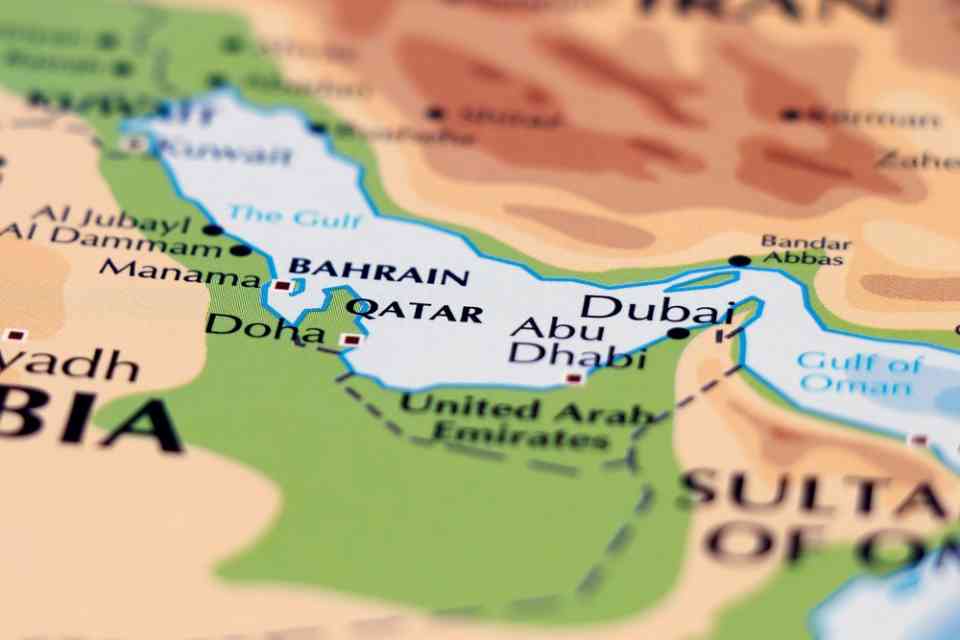Gulf States Grapple with Gender Imbalance Amid Efforts to Empower Women

While the oil-rich Gulf states of Saudi Arabia, Qatar, and the United Arab Emirates (UAE) are often associated with luxury and opulence, a stark gender imbalance lies beneath the surface. Women are frequently missing from the economic landscape despite appearing in typical birth ratios — around 96 girls for every 100 boys. By adulthood, this balance shifts dramatically, with just 58 women for every 100 men across the Gulf states, and in Qatar, the disparity is even greater, with only 38 women for every 100 men.
This imbalance is largely driven by an influx of male foreign workers, who make up as much as 95% of the labor force in some Gulf countries. Nobel laureate Amartya Sen coined the term “missing women” in 1990 to describe populations where women are demographically underrepresented. According to our analysis using World Bank data, approximately 13 million women are “missing” in the Gulf region.
The gender gap is rooted in deeply ingrained cultural traditions and restrictive legal frameworks. Despite some reforms, many Gulf countries still enforce guardianship laws that require women to seek male permission for basic activities like marriage, launching businesses, or traveling. Cultural expectations further limit women to domestic roles, restricting their access to employment opportunities.
While 40% of working-age women in the Gulf are employed, they often earn less than their male counterparts, partly because they are not seen as primary breadwinners. Moreover, women face limited access to professional training, with employers often hesitant to invest in their development due to concerns that they may leave for family reasons.
The economic cost of excluding millions of women from the workforce is substantial. A 2013 study indicated that eliminating barriers to women’s employment could significantly boost growth in South Mediterranean countries. A larger workforce could make wages more competitive, enhance business opportunities abroad, and stimulate local spending and investment. In fact, a 2015 report by McKinsey & Company estimated that advancing gender equality could add up to US$600 billion to annual GDP in the Middle East and North Africa by 2025.
Beyond economic growth, the exclusion of educated women prevents Gulf economies from gaining diverse perspectives vital for diversifying beyond oil. Research suggests that greater gender diversity in the workplace leads to better financial decisions. Furthermore, relying heavily on foreign workers, who send a large portion of their earnings back home, represents a significant economic drain. According to the World Bank, remittances from Gulf states totaled US$669 billion in 2023.
Despite the persistent challenges, there are signs of progress. The UAE has achieved gender parity in its parliament, and Saudi Arabia lifted its long-standing driving ban on women in 2019, enhancing their mobility and job prospects. Several Gulf countries are also appointing women to senior government roles, such as Shihana Alazzaz, who became the first woman to serve as deputy secretary-general of Saudi Arabia’s Council of Ministers in 2022. Women now form the majority of university students in the Gulf, creating a robust talent pipeline for the future.
Judicial systems are also evolving, with Bahrain and Qatar allowing women to serve as judges. Meanwhile, the private sector is adopting initiatives to empower women and offering more flexible work options.
Economic pressures to diversify beyond oil may accelerate these changes, but entrenched cultural norms and legal barriers continue to prevent women from fully engaging in the economy, leaving much work to be done to achieve true gender equality.
Have you read?
Best countries for hiring freelancers.
Highest Paid Big Pharma CEOs And Top Executives.
Best Websites For CEOs, business leaders, and high-net-worth individuals.
Best Executive Search Firms And Consultants in America.
Revealed: Most Powerful Women In The World.
Bring the best of the CEOWORLD magazine's global journalism to audiences in the United States and around the world. - Add CEOWORLD magazine to your Google News feed.
Follow CEOWORLD magazine headlines on: Google News, LinkedIn, Twitter, and Facebook.
Copyright 2025 The CEOWORLD magazine. All rights reserved. This material (and any extract from it) must not be copied, redistributed or placed on any website, without CEOWORLD magazine' prior written consent. For media queries, please contact: info@ceoworld.biz








